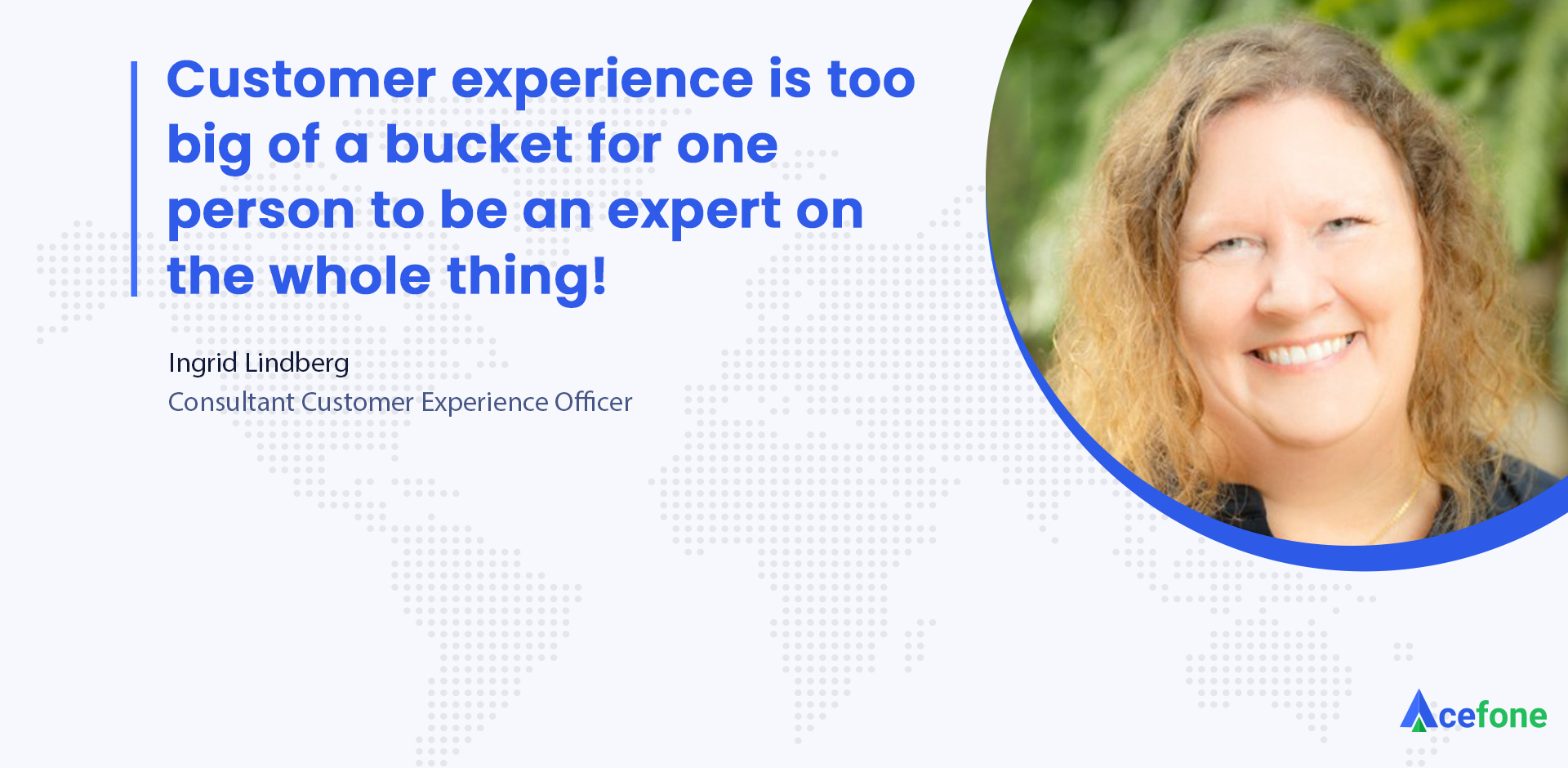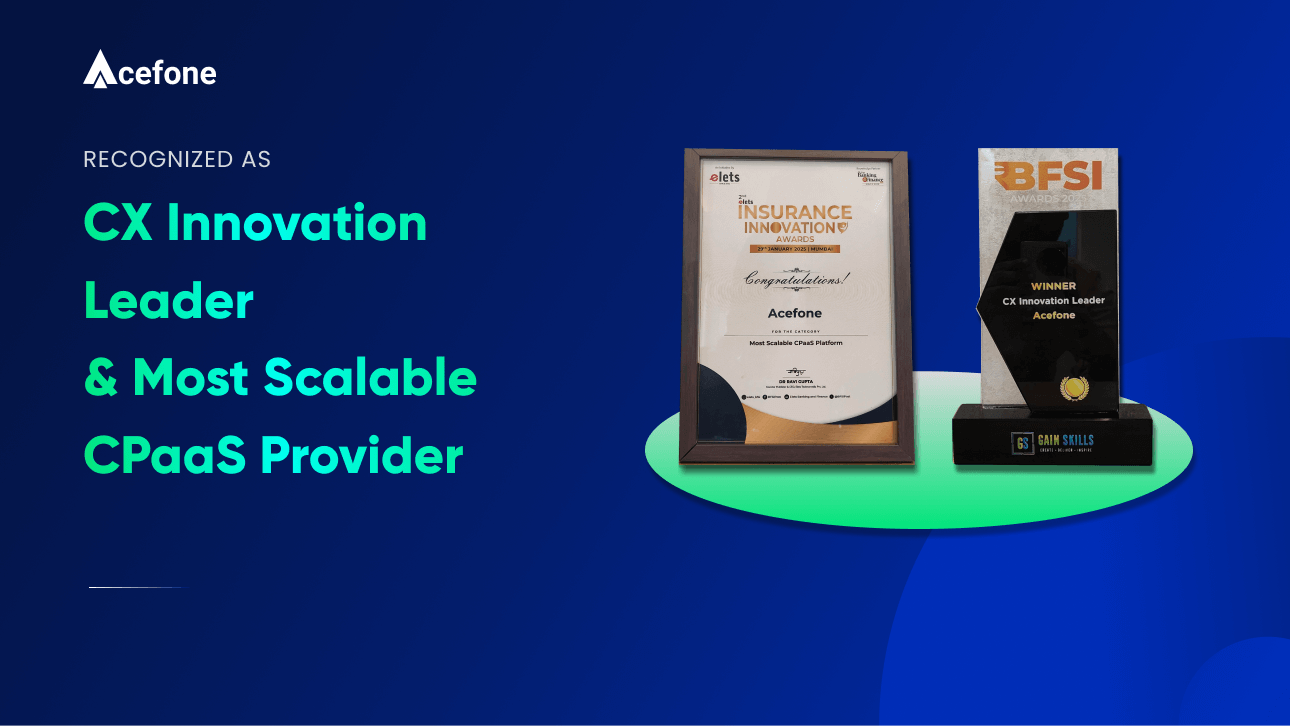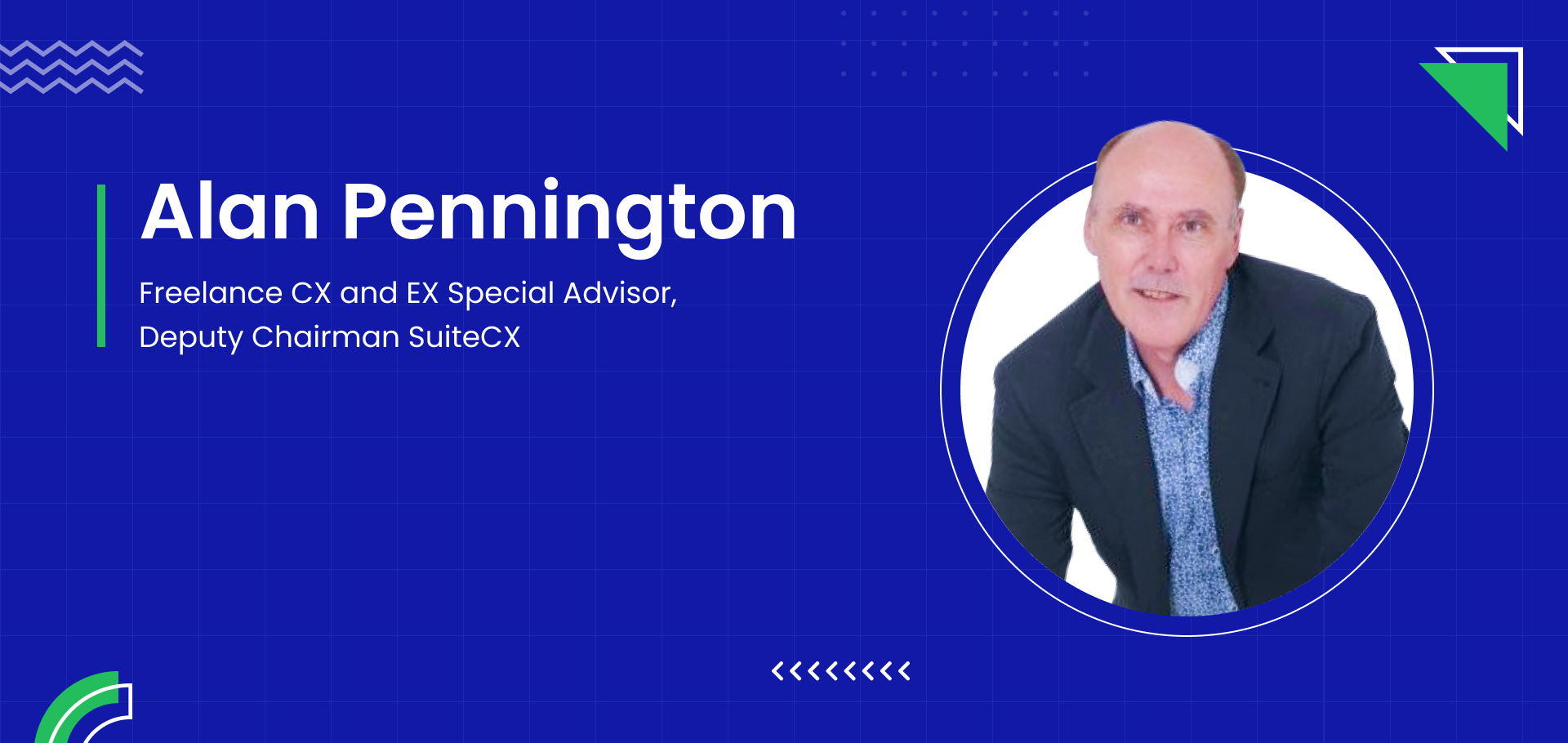Customer service has undergone a paradigm shift owing to the increasingly competitive landscape. The fundamental principle of enhancing customer experience is retaining existing customers to automatically win over new ones.
A remarkable customer experience keeps your customers coming back while promoting your services to others. Businesses with excellent customer experience reported higher customer referrals and customer satisfaction are key to a successful business.
Indeed, to be able to deliver unparalleled experiences, you must equip your employees with the requisite resources and authority. Train your employees to provide quick and effective solutions to resolve customer issues.
Speaking with us today is Ingrid Lindberg, the first-ever CXO (Chief Experience Officer) in the USA. Lindberg is a certified CX professional, CX specialist and founder of Chief Customer. In continuation to our ‘Expert Opinion’ series, we discuss the finer details of a superlative customer journey with the virtuoso who has over 20 years of unbeatable experience in the industry.
1. What made you choose a career in customer experience?
I truly fell into the field of customer experience. I worked in financial services, placing trades for people when we started to bring the ability to place trades online for the public—the beginning of financial services on the web! I had ideas about making it easier. MY CIO (Chief Information Officer) encouraged me to learn how to design web pages so people could easily use them.
That indeed was the beginning.
I had ideas, and education in sociology, studying people, and curiosity. I was lucky enough to get formal training and then the opportunity, not just to design web pages but pieces of paper. Then came contact center interaction design. The next thing I knew, I was doing multichannel designs with strategies behind them. And that became the customer experience field.
2. What do you think is a criterion for a successful customer experience expert?
In my experience, there is no such thing as a CX expert. Customer experience is too big of a bucket for one person to be an expert on the whole thing!
There are expert journey mappers; experts at designing interactions; experts at building strategies; experts in research and creating the voice of customer programs and the likes. It is like any other industry—you must declare your major.
I am an expert at developing strategies and designing company transformations. I am not great at building Voice of Customer programs. I’ve led people who have done that work, but I am not a market researcher.
3. Have you ever successfully motivated a business to achieve demanding performance standards during an uncertain time? If so, how?
One of the most significant transformations that I designed and led was at Cigna during the recession. We were facing tremendous pressures and a rock-bottom stock price. The motivation for that transformation was indeed a burning platform—change or die.
And we changed that company completely—and they continue to thrive on the platform of customer-centric decision making.
4. How do you feel after becoming the first person in the USA to hold the title of CXO?
It is such a weird thing. I downplay it all the time because I cannot believe it.
I did not choose the title; my CEO and CMO did. They had read about the need for a CXO in a Harvard Business Review article and decided that the company needed one. I have been told repeatedly that I am the first to have held it, but I had no idea what it was!
I remember going to LinkedIn when I was offered the job in 2007. I searched for CXO. There were no results. So, I had to make a lot of it up as I went along. We had to create job descriptions for Voice of Customer leaders and Customer Experience Architects. Every step was an exhilarating battle because there were no best practices. So, we learned a lot.
I love to say that we built an aeroplane in the sky, successfully flew it worldwide and safely landed it.
5. You have worked in CX for around two decades now. What were the most challenging situations while advising businesses?
Customer experience should not be such a tricky thing, should it?
We consistently see pushback on whether or not it works, what the ROI is, whether it should be funded. The most challenging situation I have found myself in as I advise businesses is coming in after they have already spent a ton of money on CX and have not seen any results.
So often, a company will buy a piece of software to manage customers’ voices or map journeys and then they do not see any results. Spending money without a clear strategy and plan is pointless. It creates so much dissonance and dissolves trust between CX activities and executive teams.
I implore the leaders out there to just say no to CX efforts until you have three things in place:
- CEO support
- A strategy
- A plan
6. What, according to you, works best to ensure a seamless customer experience?
I don’t think there is such a thing as a seamless customer experience. The thing about customer experience is that humans deliver it. Humans build websites and apps. Humans program AI. Humans create letters and emails.
And we aren’t seamless.
I have learned that you have to bring all the parties together with a shared set of goals and a clear strategy. You have to define the expectations for orchestration and the outcomes. And then you must support them to ensure they get what they need to make it all happen. You must make apologising to your customers an okay thing. We all are human. There will be mistakes. Apologise when it goes wrong, and then fix it.
7. Would you like to tell us some CX elements that are usually missing in startups and businesses?
I find, especially when working with startups, that all the focus is on the product. A fabulous product is built, and it is beautifully designed and does exactly what you want it to. But way too many start-ups have never asked a customer about whether they want it, if they would use it and if it works for them.
Start with your idea, yes, but quickly intertwine your customer into your build.
8. Lastly, how do you think technology affects customer service? How does it influence CX?
I think that technology is simply an enabler for customer service professionals. We spend way too much time in the CX industry talking about customer service.
In the industries I have spent the most time in (telco, finance, healthcare), we have learned that customer service only accounts for between 6-10% of the experience. Products, processes, and communications are often so much more important. Customer service is there for when something goes wrong with your product, processes, or communications. Focus on those first.
Wrapping up
Our conversation with Ingrid Lindberg has not only given us meaningful insights into the importance of a customer-centric culture but also helps us understand how businesses can embed the same in their day-to-day operations.
By implementing her advice, organisations will surely notice a significant rise in their customer base, organic marketing, and thereby, their performance.
If you also wish to imbibe a customer-centric approach in your business, there’s no better to start than a cloud-backed solution. Get in touch with our experts today. Make a call at 1888-859-0450 or drop an email at [email protected].














